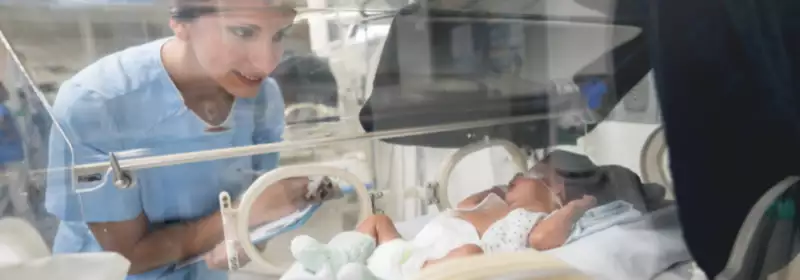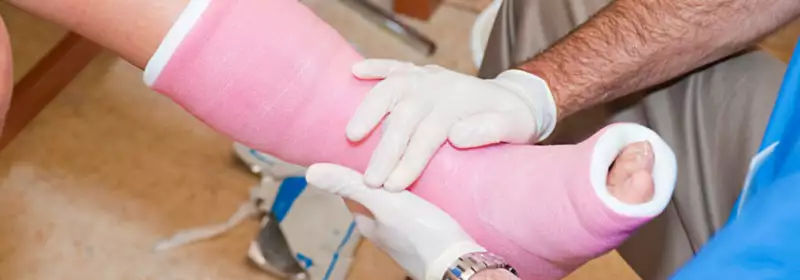The scope of modern day healthcare services is vast to say the least. From urgent surgeries in accident and emergency to your annual vaccination at your local GP’s office, there’s a host of reasons people seek medical support. And with nurses required to facilitate most treatments, the capacity in which you can work as a nurse is almost endless.
In fact, nursing roles span across the full spectrum of the health care system. So whether you’re more suited to caring for children or helping people better manage their mental health conditions, there’s no doubt about finding a specialism to suit your interests.
However, what areas of nursing you will find most interesting will depend on numerous personal factors.
People are generally drawn to nursing because they have a desire to help others. Whether it’s making people’s lives a little easier who live with certain health challenges, or alleviating their suffering if they have a painful condition. If you’re passionate about caring for others, nursing can be a great career choice for you.
Alternatively, it may be certain aspects of healthcare provision, or particular conditions that pique your interests and draw you in.
In any case, you can become a nurse and support people in all manner of ways. If you’re considering a nursing career, explore some of the many interesting areas you can work in below.
Mental Health Nursing
Helping patients who may be overwhelmed by their thoughts and feelings. The patients you’ll work with could be experiencing anything from severe anxiety to depression and mood disorders. In many cases, the patients you’ll help may be experiencing feelings of extreme isolation. Which makes it harder for them to trust others and seek support.
As a mental health nurse, you need to build that all important trusting relationship with them. And you’ll do so by being there for them as they work through their challenges in therapy and other psychological treatments. You’ll give them helpful advice that enables them to better manage their condition and minimise relapses. And make sure they don’t feel isolated and alone in their journey to recovery.
Special Educational Needs Disability Nursing
Work in a multi-disciplinary team of professionals, alongside the patient’s family and carers to provide support to individuals with special educational needs. The patients you’ll work with can experience physical, sensory and/or mental health challenges. So their needs will be varied, as will the support you’ll provide them. And you will often work alongside other healthcare professionals like mental health nurses and therapists to effectively cater to these needs.
As an SEN nurse, you’ll work with some of the most at-risk and vulnerable people, in all age brackets. So you’ll need to be empathetic, approachable and value their safety above all else. You’ll help improve their health and well-being and enable typically socially excluded individuals to live fully integrated and independent lives.
ICU Nursing
Work in highly specialised intensive care units dealing with seriously ill patients or those requiring specialist treatment and monitoring after surgery. You will also support planned admissions for patients coming in for anything from cardiac to neurology, renal or transplant surgery.
As their needs are greater than the average patient, you will generally care for a maximum of two patients at a time. Depending on your ward or specialism, this could solely be with children, cardiac or trauma patients. In any case, you’ll need to know the uses and functions of a wider range of equipment in these environments.

Theatre Nursing
Providing support to patients and healthcare teams in medical theatres, which can be any healthcare unit providing planned perioperative care. This could see you working within operating theatres, anaesthetic recovery areas, cardiac catheterisation units, clinics or wards.
Your patients can be of any age and you’ll typically be involved in each stage of their surgery. The four stages of which are: preoperative, anaesthetics, surgical and recovery. Each of which requires you to perform different nursing duties. These could be anything from receiving informed consent and prepping surgical equipment to caring for the patient post-operation.
Children's Nurse
A nurse who supports patients under the age of 18 as they receive medical treatment. You would typically be responsible for assessing the requirements of your patients before confirming they are matched with the correct level of care. You’ll then observe their condition over time and record data while administering any necessary medication.
Each of your young patient's needs and situations is different. So, care must be taken to ensure factors like their development, medical history and family circumstances are all taken into account. Which brings a different set of challenges than would be experienced in most nursing roles.
Community Nursing
Nurses who provide high-quality care to individuals out in the community. As such, your work would take place outside of a hospital environment. Instead, you would typically find yourself working within the patients’ homes, GP surgeries and residential care homes.
Your patients are often referred to you to receive follow-up treatment after discharge from a hospital or on the advice of their GP. In this instance, you’ll typically work with them in the community over a continued period of time. Allowing you to build stronger supporting relationships than would be possible in other nursing environments.
This also means your duties are extremely varied, as the needs of your patients can be very diverse. You could be involved with anything from assessing and treating wounds to helping diabetic patients manage their condition.
Neonatal Nurse
Helping babies who are premature or experiencing certain conditions reach good health. A perfect role for those who are particularly affectionate and love being around newborns. You would be based in a neonatal and special care baby units and take on duties that can support new babies and their families. This could be anything from preparing medication and recording the condition of the baby to advising and reassuring the parents during such a challenging time.
You will also work with other professionals who specialise in newborn health, from midwives to dieticians. Each of whom will ensure your newborn patients are in the best possible health before they are allowed to go home with their families.

Cardiology Nurse
An area of nursing specifically focussed on treating cardiovascular problems. Whether it’s through surgery, medication or compiling a lifestyle plan, you’ll help patients return to good health and maintain a healthy heart. Aside from working with patients with diagnosed conditions, you’ll also help those experiencing abrupt issues such as a heart attack.
You will keep track of their medical history and perform tests to diagnose any underlying problems. Spending time with the patient and their family after treatment is also important to make sure they understand the nature of their condition. As well as what to expect going forward.
Nursing Home Nurse
Nurses providing custodial care to adults with medical conditions which have made their health deteriorate. Nursing home nurses are experienced in the many long-term conditions associated with ageing. As such, they can manage multiple complex morbidities and frailty.
The care you provide in this role differs from that in other healthcare settings as it is more holistic. That’s because, for the most part, the patients you work with are in good health and going about their lives in the home. So you have the privilege of getting to know each of them personally. Creating both a positive and supportive relationship with them and their families.

How to Become a Qualified Nurse
In order to pursue any avenue of nursing, you must first become a fully qualified nurse and be registered with the Nursing and Midwifery Council (NMC). And for this, you will need to complete an approved degree in nursing.
At the moment, you have four degree categories to choose from: adult, child, mental health or special educational needs disability nursing.
Each of these will have their own entry requirements and traditionally, these were limited to GCSEs and A Level qualifications. However, now, there are many more options of qualifications you can take to get accepted onto your degree.
If you don’t currently hold A Level qualifications, for instance, an Access to Higher Education Diploma (Nursing) will give you all the preparation you need for a nursing degree.
You’ll study fascinating and highly relevant topics that will help you get prepared for your nursing career. From the history of the NHS to approaches to health and the roles and responsibilities of the registered nurse.
The course also allows you to study at your pace from the comfort of home. And its vocation specific modules remove the need for multiple A Levels. So you can be on your way to university quicker than would otherwise be possible.
Get Started Today
If you’re ready to make the move towards a nursing career, let learndirect help you get started.
We have courses to help anyone at any stage of their education reach their career goals. So, whether you need to complete GCSEs, A Levels or any of the many equivalent courses to get you on the path to university, you can. And you can do so without impacting your current schedule.
The flexibility of distance education enables you to study when and where suits you best. So you don’t have to stick to a predetermined schedule. Allowing you to go back into education at any age, whenever you’re ready.
Find out more about how this course can help you by speaking to our advisors today. You can call on 01202 006 464, contact our support team online here or view our website for more details.
Otherwise, you can view our Access to HE Diploma (Nursing) in more detail in our free brochure below, or read more about becoming a nurse in our blog.




















